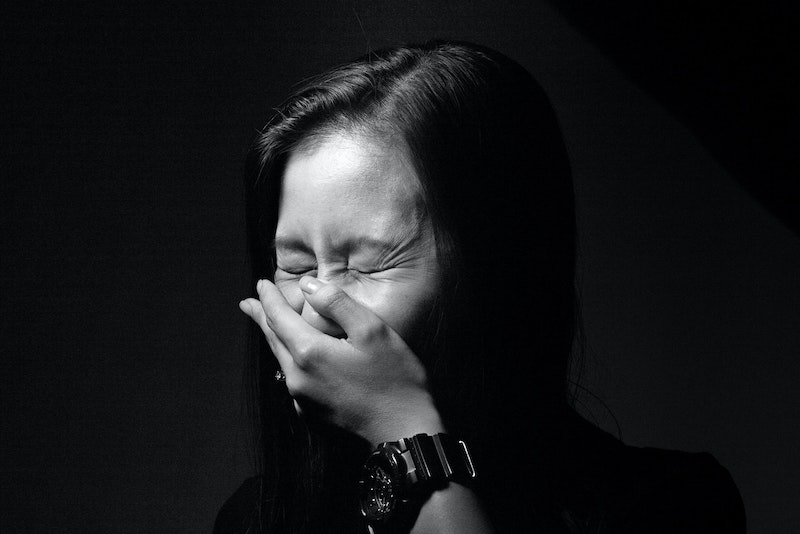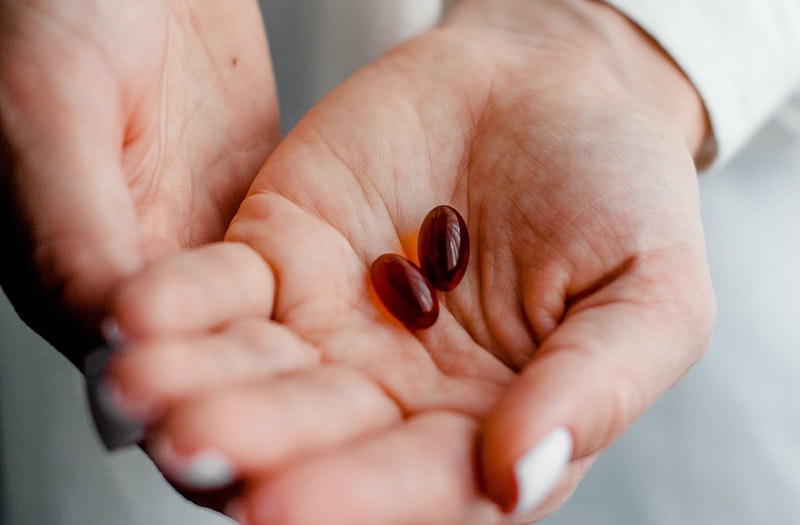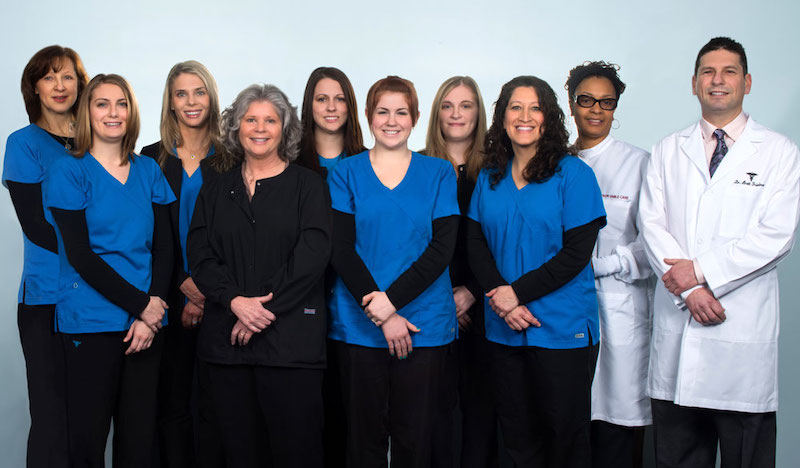Dealing with Cold Sores? How to Make Them Disappear, Fast

Most of us have experienced a mouth sore or irritation at some point during our lives. It's possible your mouth sore was caused by biting your tongue, lip, or cheek while chewing or speaking. It's also possible that the irritating bump on your lip is a pesky pimple.
But a frustrating accident or skin inflammation aren't always to blame. You may be suffering from a cold sore.
What is a cold sore?
Often called "fever blisters," cold sores are a group of small, fluid-filled blisters that usually appear around the lips and sometimes under the nose or around the chin. And yes, cold sores feel just about as pleasant as they sound.
This type of sore can last for 5-7 days and may even come back later after they appear to be healed. Cold sores are also extremely contagious. Kissing, contact with saliva, and sharing items like straws, eating utensils, and chapstick can all transmit the virus from person to person.
What causes cold sores?
Cold sores are a symptom of an infection caused by oral herpes. Don't be too quick to jump to conclusions — cold sores are not a sexually transmitted virus. This strain of herpes (Herpes Simplex Virus, or HSV-1) is usually contracted during childhood or young adulthood from nonsexual contact with saliva.
If you have a cold sore, know that you're not alone. Approximately 100 million Americans carry HSV-1.
What's the difference between a canker sore and cold sore?
Although many people use these terms interchangeably, there is a difference between canker sores and cold sores.
The most obvious difference is that canker sores appear inside the mouth, while cold sores nearly always occur on the outside of the mouth.
There's usually a difference in appearance, too. Canker sores usually start as a small bump before bursting a day or two later, leaving a whitish or yellowish area with a red, inflamed border.
Additionally, this type of sore is not a form of herpes. In fact canker sores don't have a clearly defined cause, but are often triggered by:
- Stress or fatigue
- Hormones
- Facial trauma (biting on the inside of your mouth or an accident)
- Acidic, sharp, or other irritating foods
Canker sores, though painful, usually heal within a week or two on their own (though there are ways you can treat them faster!)
Finally, an important difference between canker sores and cold sores is that a canker sore is not contagious.
The best way to know for sure if you are dealing with a cold sore or a canker sore is to talk to your dentist.
Cold sore symptoms

Before the sore appears, you will likely experience a sense of burning or tingling at the site of the sore. This is typically followed by tiny red or inflamed bumps, and later multiple connected blisters.
Once your blisters have drained, they'll eventually crust over with a scab. Do not pick at this scab! It's very important for 2 reasons:
- Keeping your sore safe from outside bacteria
- Keeping the virus from spreading to others
Unfortunately, an outbreak of HSV-1 (particularly the very first one you have) can cause other bodily symptoms. Along with the onset of a cold sore, you may also experience:
- Fever
- Muscle pain
- Sore throat/swollen glands
- Headache
You may not always have these symptoms with a cold sore, but if you do, you can expect them to last 3-4 days.
At-home treatments for cold sores

There are a few immediate steps you should follow as soon as you notice a cold sore:
- Wash your hands often
- Don't touch your cold sore — if you do, wash your hands immediately
- Avoid sharing food or beverages or personal items (like toothbrushes, toothpaste, or lip balm)
- Don't kiss people during an outbreak
- Avoid contact with babies or children
Keep in mind, it's typically believed that your cold sore is contagious until it's completely scabbed over.
The next step is to make an appointment with your dentist. Not only will they be able to clearly identify whether you have a cold or canker sore, they also have professional, high-tech treatment options to help stop the outbreak (more on that soon!)
There are a few at-home cold sore treatments you can try to relieve pain and slow the spread until you can get professional treatment.
- Take an over-the-counter pain and inflammation-reducing medication, like ibuprofen
- Use over-the-counter cold sore cream to numb the area and reduce pain
- Aloe vera get may help fight the virus and help the area heal
- Natural remedies like a lemon tea compress, lip balms with at least 1% lemon balm, witch hazel oil, and licorice root
Your dentist can help you treat cold sores (and canker sores!)
Remember that you can never completely "cure" the herpes simplex virus — it will remain with you. However, your dentist can help you alleviate symptoms faster and reduce breakouts.
At Towson Smile Care, we offer a few ways to help you fight off and heal both cold sores and canker sores fast. Our team can...
- Help you identify whether you're suffering from a cold sore or a canker sore
- Prescribe an antiviral medication to speed up recovery
- Perform laser therapy
Using laser therapy to treat cold sores & canker sores
Laser therapy has been proven to be a fast-acting treatment for cold sores and canker sores. Here's how it works:
- The laser disinfects the sore and stimulates the growth of cells involved in wound healing
- This essentially reduces inflammation and the size of the lesion, while speeding up the healing process
- At the same time, the laser affects your nerve fibers, greatly reducing the transmission of pain signals
- Most laser-treated sores are cured within 48 hours!
Getting laser therapy is really simple. You'll experience little more than a warming sensation on and around the sore during your treatment.
Let's recap all the benefits of laser therapy for cold sores (and canker sores!):
- Treatment takes just a few minutes and requires no anesthesia
- Relief is immediate
- Faster healing
- After treatment, sores tend to recur with less intensity and frequency at the that location
Treat your cold sore at Towson Smile Care

Experiencing your first cold sore outbreak? Have a pesky canker sore that won't go away? Want more information about our high-tech laser therapy options? Our team is happy to address your concerns and answer your oral health questions.
Give us a call today at (410) 296-7599. We're here to help!
